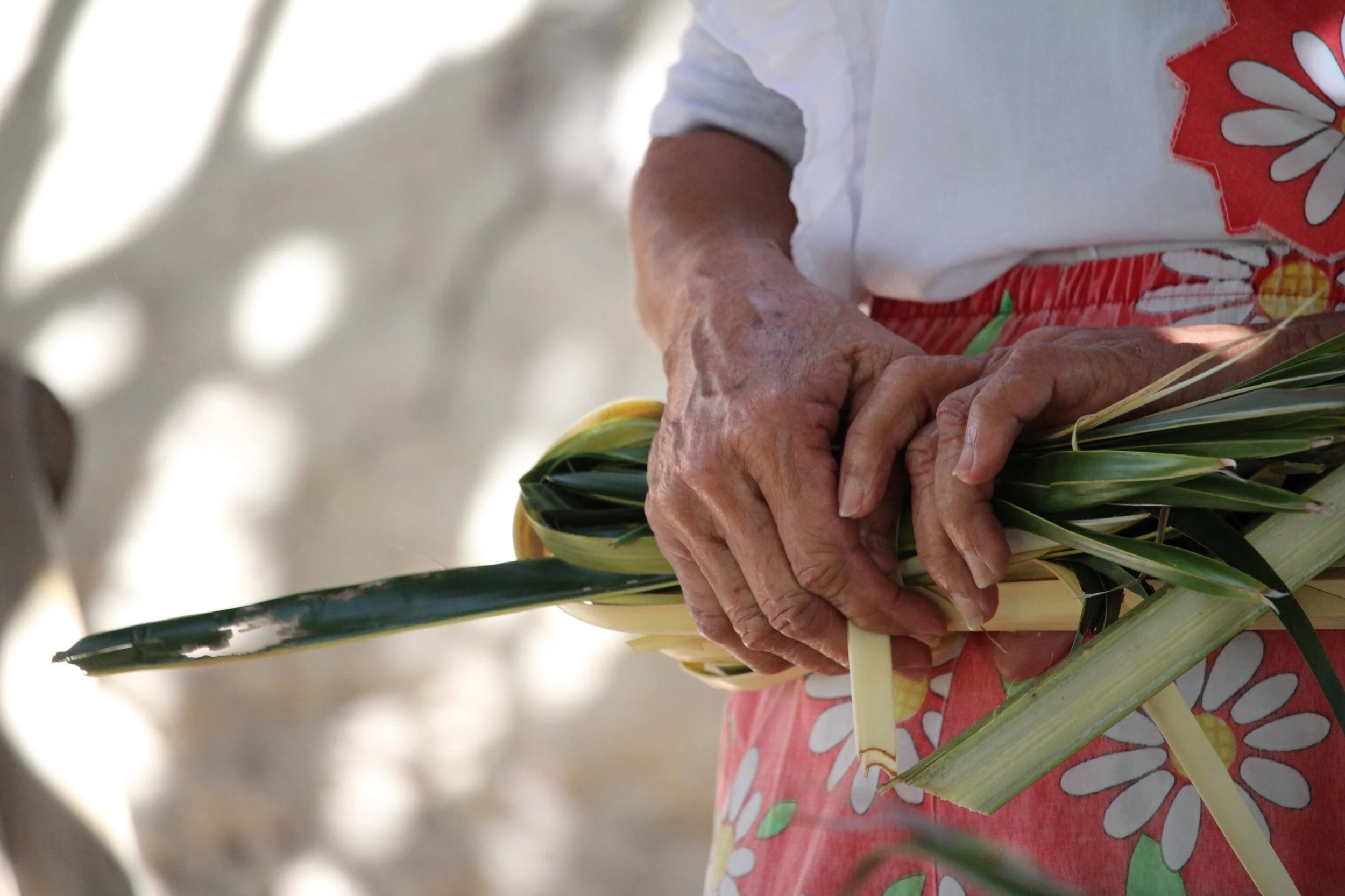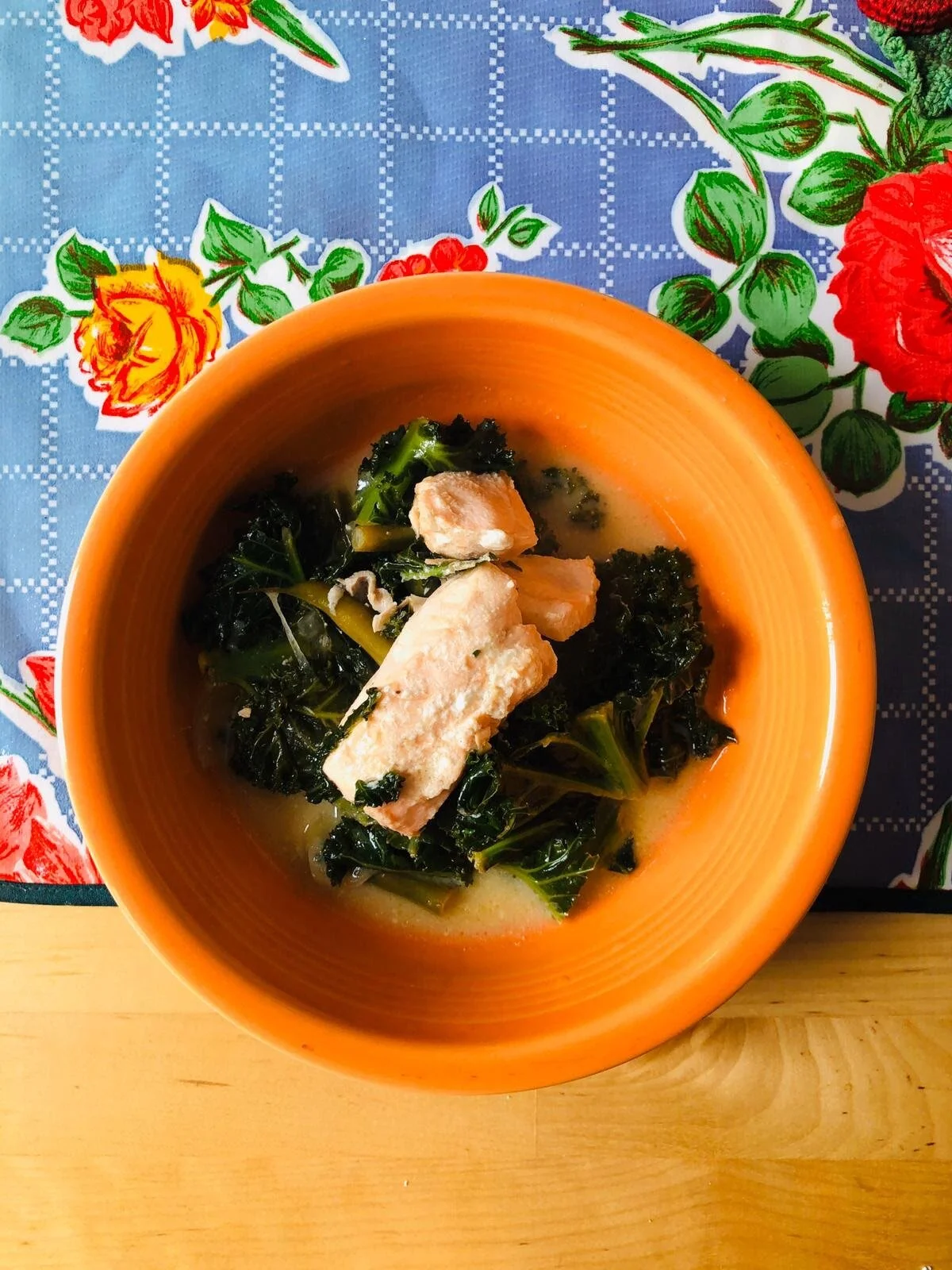Maimo
Written by Martha Duenas | April 2020
si Tan Rosita | photo by ifit
Pulan : Maimo
Part II
With every moon our gatherings strengthen our resolve to nurture our connection to our ancestors and traditions. Updates on events taking place on the island, Kerri Ann’s latest carving, Kayana’s next design assignment, neni Nyla’s new tooth or Angela’s weaving project, Clarissa’s poem published in a recent anthology, or the opening of Lehua’s art installation are all reported and passed amongst us with the hineksa’ agaga’, titiyas yan fina’dene, CHamoru red rice, flat bread and salsa. Our cultural staples are ever present. However, we begin to examine the context of how the food we bring to our kitchen table is produced, who produces it and what are the ecological considerations? Are relationships respected? Responsibilities upheld? How do we navigate these complex issues? What did our ancestors do? Hami i ManCHamoru, i manaotao i tasi, i tano’, yan i langhet ham. We the CHamoru people are the people of the sea, the land and the sky. We are after all, Wayfinders.
Efforts toward Indigenous food sovereignty in Guåhan help us develop our perspective for ways we can integrate awareness and practice. Community organizations, university programs, elementary school gardens, government agencies and small businesses have introduced innovative opportunities to restore traditional island food systems, promote health and nutrition, and regenerate our terrestrial and marine environment. This collaboration and partnering engage sectors across the spectrum of the island community including young children, entrepreneurs, families, elders and students. Elders working with Guma Yo’Åmte of the Håya Foundation and Amot Farm teach traditional healing arts, and the uses and preservation of medicinal plants. On school campuses, village community centers and shopping malls, the University of Guam Triton Farm, Guåhan Sustainable Culture, Tiny Greens Guam and DC Aquatic Systems are amongst the many organizations, agencies, groups and businesses who provide demonstrations, training and consultation for Small Farm Integration which incorporates aquaponics, horticulture and animal production. These newer contemporary concepts are embodied in the complex Indigenous innovations and technologies passed down through generations in story and song: Traditional Ecological Knowledge (TEK). It is the cumulative body of knowledge, practices and beliefs of our ancestors. In restoring our sacred relationships with our more than human relatives and remembering our way of life, we create the possibilities of abundance in our world. Our ancient ways give us new life!
We can learn from the visions and models of our island home. In our own urban diasporic communities, our small organic gardens tell us to eat what is in season. With access to local farmer’s markets, natural food stores, CSAs (Community Supported Agriculture), as well as local online sources, we become conscious, discriminate and creative consumers in what we choose to put in and, on our bodies, and what we bring into our lives and our homes. We remember that when we feed our children, our nieces and nephews, we are also feeding generations to come. As Salish Muckleshoot tribal member Valerie Segrest suggests, “When you go to the store, take your ancestors with you!”
Virtual Menu
Kayana’s mom’s chalakiles
Reese’s salmon kaddo
Kerri Ann’s Grandma’s mungo beans with achiote
Angela’s pickled papaya




